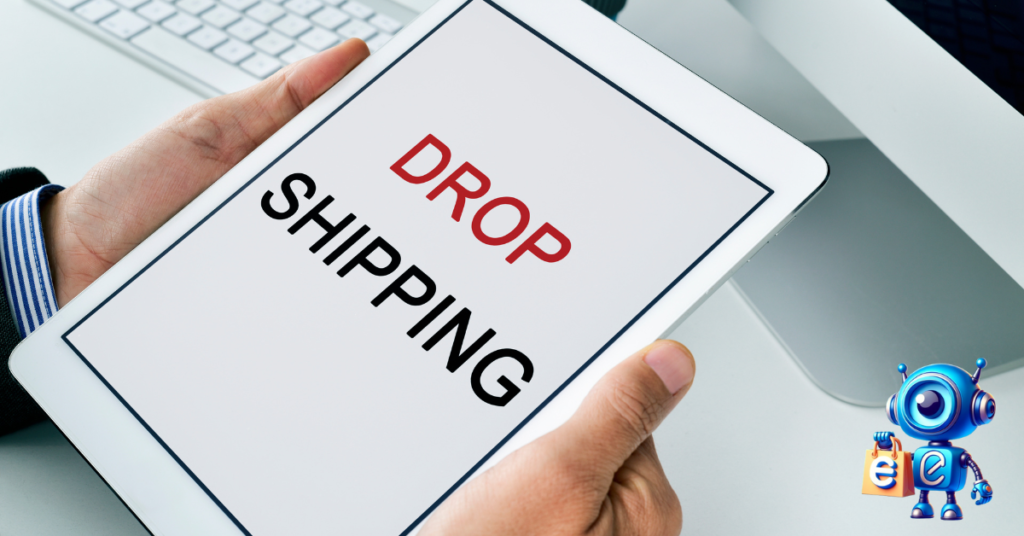Finding a good supplier for a dropshipping business can be daunting and involves time and effort. However, it is a significant consideration for anyone looking to start a dropshipping business and wants it to thrive.
As a drop shipper, your brand’s reputation depends entirely on your chosen supplier. You don’t completely control the products’ quality, handling, or shipping. Since the supplier does everything for you, you must be careful when choosing the right one.
This guide provides tactics that will help you find a dropshipping supplier for your business and how to spot a fake one at a glance. Keep reading!
Table of Contents
What makes a good supplier?
You could ask yourself, “What makes a good supplier?” or “How do I know that a particular supplier is the best for my business?” You need to know that the foundation of your dropshipping business lies in the hands of your supplier.
That said, the first step is to develop a criterion for selecting suppliers. Before anything else, identify the type of market you’d like to focus on.
From there, you need to know the markets in which the suppliers sell their products and find out if they offer any additional services that could benefit your business.
This is a crucial step that requires thorough research, as it is the beginning of the decision-making process.
Compare different suppliers and vet them accordingly. Determine their levels of efficiency and also verify their shipping times.
For example, you can contact them and place an order to see how they respond and how long it will take them to deliver. This will also help you check on the quality of the product to see if it meets your standards.
While finding an ideal supplier is a step up, you must also determine the channels to sell the products. Here, it would help if you thoroughly researched your target audience.
Ensure you understand which market suits your product before searching for a supplier. Remember, you can only choose a product if you are choosing a product that your customers want. Only research will help you make a fruitful decision.
How to identify fraudulent dropshipping suppliers
When searching for suppliers, be careful not to encounter fake ones. Unfortunately, many counterfeit suppliers exist, especially since traditional ones must follow the best SEO practices and are hard to find through a simple Google search.
As a result, illegitimate suppliers, mostly intermediaries, tend to appear more frequently in your searches. So, how can you tell that this is a fake supplier?
Fraudulent suppliers sell to the general public.
Beware of suppliers who sell directly to the general public. Legit suppliers focus on wholesale deals with businesses like yours. If they have their storefront selling the same products you’d be dropshipping, it raises a red flag. Actual suppliers usually have an application process to ensure they deal with legitimate ventures.
They charge ongoing fees.
Actual dropshipping suppliers earn money through wholesale pricing on the products you order. They don’t charge monthly membership or service fees. While some might charge a one-time setup fee, ongoing charges can be a red flag.
For this particular point, it’s essential to understand the difference between supplier and supplier directories. Supplier directories are like online catalogs that list wholesale suppliers.
These directories are organized by product type or industry and try to weed out fake suppliers. While most directories charge a fee, either a one-time payment or a monthly subscription, this doesn’t necessarily mean they’re a scam. It’s just how they make their money.
They omit pre-order fees.
Don’t get tricked by suppliers who don’t charge pre-order fees. Actual dropshipping suppliers don’t ask you to pay upfront for products you have yet to sell. You’re their customer in this case, not the other way around. Pre-order fees can be a sneaky tactic used by fake suppliers.
They might pressure you to pay a deposit to “secure” inventory but then disappear with your money, leaving you empty-handed.
Real dropshipping suppliers are happy to wait for payment after you’ve made a sale. Their profit comes from your wholesale price for each order you fulfill.
So, stick with suppliers who focus on building a trusting partnership and do not charge upfront fees that sound too good.
They don’t have minimum order sizes.
While it might seem tempting, zero minimum order requirements can be a red flag with dropshipping suppliers.
Actual dropshipping suppliers often deal with bulk wholesale quantities; some might require a minimum order per product. This ensures they can efficiently fulfill orders and cover their costs.
Fake suppliers can use super low or nonexistent minimums as a tactic. They might lure you in with the promise of buying just one item at a time but disappear after you pay.
Minimum order quantities are normal with genuine suppliers. For instance, they may charge you $100 upfront or a minimum of 100 units and later fill orders as they come.
No address or contact info
Never deal with suppliers who display minimal or zero contact information. Legitimate dropshipping suppliers are transparent.
Therefore, their businesses are registered with the relevant authorities and have nothing to hide. To validate that a supplier is legit, ensure the supplier has provided information about their physical or street address. Legitimate dropshipping suppliers want to build trust with you, so they’ll display their addresses, phone numbers, and email addresses on their website. This allows you to reach them with any questions or concerns.
They need to gain industry knowledge.
A supplier who seems clueless about a niche is a no-go zone. Legit dropshipping suppliers deal with specific niches and have a good understanding of the products they sell and the trends within the market. For example, if you ask detailed questions about fitness apparel and the supplier gives vague or irrelevant answers, it’s a red flag.
Start shopify Free Trial Today


A genuine supplier can speak your language and offer helpful advice on products or industry trends.
Dropshipping suppliers are partners, not just vendors. They should be able to support your business with their knowledge and expertise. Avoid suppliers trying to sell you anything, regardless of whether it fits your niche.
How to find a legitimate dropshipping supplier
At this juncture, you can distinguish between fake suppliers and real ones. Now, it’s time to begin your search for legit wholesalers. There are different strategies that you can use, including:
Reach out to the manufacturer.
This is one of the easiest ways to locate a genuine supplier. If you’ve already determined the niche to focus on, call the manufacturer and ask them for a list of wholesale distributors.
Once they’ve provided the list, contact these distributors, enquiring if they dropship and the requirements. Many suppliers source products from various manufacturers, and this tactic will help you purchase products within the niche you are dealing with.
Before you contact the suppliers, make sure you do the following:
- Check reviews and order quantities to determine if they offer a reliable service.
- Check the raw materials, shipping times, and return policies to ensure they meet prospective customers’ needs.
- Validate the product by ordering some in advance to verify the quality, see the packaging, and check the delivery times.
Use Google Search.
Using Google search to find legit clients will give you trustworthy results. However, there are a few things that you need to consider:
- It would be best to search extensively since many suppliers are poor at marketing themselves. You don’t expect to see them ranking at the top of the search results when searching for products. Therefore, you’ll have to go through many search results to find them.
- Don’t be scared away by their poorly designed sites. Many suppliers don’t focus on building quality websites for their businesses. Well-built sites are a sign of suitable suppliers, but don’t ignore the 90s sites.
- When searching for a supplier, use various keyword modifiers. As we said earlier, many suppliers are notorious for not incorporating proper SEO to ensure you find their website easily. Instead of focusing on the word “supplier” in your search, try other alternative words such as “distributors,” “wholesalers,” “warehouse,” etc.
The traditional order-from-the-competition still works.
Don’t get stuck finding a supplier when you can utilize the old “order from the competition” tactic. This is what you do: Look for a competitor dropshipper and place an order with them. When the package is delivered, please find the company’s return address and note it down. It could be the address of the original supplier with whom you may partner.
If you’ve applied all the other techniques for finding a supplier in vain, try this one, but only rely a little on it.
Attend Tradeshows
At the trade show, you’ll have the opportunity to connect with so many manufacturers and wholesalers in your niche. It is the perfect way to make contacts and learn about particular products and suppliers.
For this technique to work, ensure you have a niche in place. It’s also important to note that this tactic is only practical for some. But, if you have the resources required, attending the shows is an excellent avenue to familiarize yourself with manufacturers and suppliers in the market.
Directories
Supplier directories are online databases that list wholesale suppliers, often organized by industry, niche, or product type. Many directories try to verify the suppliers they list to ensure they’re legitimate businesses. These directories are usually run by companies that charge a fee to access their information.
Membership directories are beneficial, especially when you are looking for product ideas. However, they’re not so necessary. If you have a specific niche or product in mind, you can find significant suppliers by researching using the techniques mentioned earlier.
Plus, once your dropshipping business is up and running, you will only need the directory again to expand your product selection.
That being said, supplier directories offer a convenient way to browse and compare many suppliers simultaneously. They can be an excellent resource for sparking ideas for selling products or exploring niches.
They can be a valuable tool if you need more time and are willing to invest some money. However, if you’re on a tight budget and have a clear vision for your store, you can find what you need through research.
Read Also:
- Dropshipping For Students – Starting a Business from College
- The Pros and Cons Of Shopify For Dropshipping
- How Much Does It Cost To Start Dropshipping
- Dropshipping Scams & How To Avoid Them As a Beginner
- What Is Dropshipping And How Does It Work?
Finding a supplier for my dropshipping: Final Thoughts
A dropshipping supplier plays a vital role in the success of your dropshipping business. You can’t afford to engage the wrong partners and see your business go down.
You can try Ecommercebot for free; no credit card is required. You agree to turn your E-commerce business into a success story by clicking the image below.

Take your time to research the best and most legit suppliers in the market before making any significant decisions. The tips we’ve discussed will help you run your dropshipping business with suitable suppliers who will help you climb the success ladder.
Frequently Asked Questions (FAQs).
- What is dropshipping?
Dropshipping is a retail fulfillment method in which you don’t keep inventory. Imagine this: a customer orders a product from your online store. You then forward the order to your dropshipping supplier, who handles everything else, including packaging, shipping, and delivering the product directly to your customer.
With drop shipping, you focus on marketing and selling while your supplier takes care of the rest!
- Are there free drop shippers?
No, there are no free dropshipping suppliers. However, some drop shippers may offer free shipping from time to time.
- Is dropshipping profitable?
Yes, dropshipping can be profitable if carried out well. The difference between the supplier’s price and yours will determine your profit. Remember to factor in the expenses, if any.
- Where can I find dropshipping suppliers?
You can find dropshipping suppliers in various ways, including by contacting them directly, attending tradeshows, doing Google searches, ordering from competitors, and using supplier directories.

